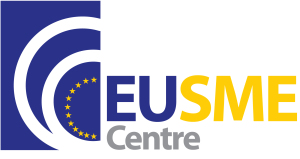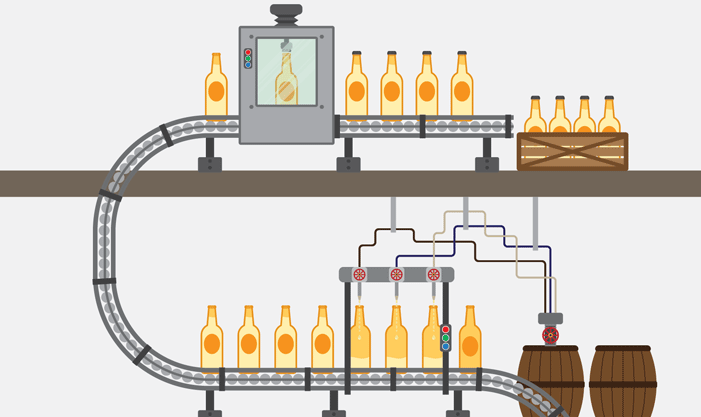 As China’s F&B market continues to grow, concerns remain over food safety issues. In order to strengthen and enforce consumers’ rights, the Chinese Government has over the past two years been restructuring its mechanisms to supervise food production and distribution. On 1st October, 2015, the new Food Safety Law (NFSL) entered into force and is considered to be the most stringent ever passed in China. Dr Martina Gerst, Standards and Conformity Assessment Advisor at the EU SME Centre, looks at the new law and its potential implications for EU SMEs.
As China’s F&B market continues to grow, concerns remain over food safety issues. In order to strengthen and enforce consumers’ rights, the Chinese Government has over the past two years been restructuring its mechanisms to supervise food production and distribution. On 1st October, 2015, the new Food Safety Law (NFSL) entered into force and is considered to be the most stringent ever passed in China. Dr Martina Gerst, Standards and Conformity Assessment Advisor at the EU SME Centre, looks at the new law and its potential implications for EU SMEs.
The NFSL is meant to clean up China’s entire food supply chain – from banning toxic pesticides, regulating labelling and distribution, and, importantly, increasing punishments for those who violate existing laws. There is a new burden of responsibility placed on everyone along the entire food chain, including European SMEs exporting their foodstuffs to China.
Chinese consumers’ appetite for foreign foodstuffs is undiminished – in 2014, imports were valued at EUR 42 billion with 35 million tonnes of imported food being inspected and quarantined in China. Food and beverage (F&B) imports from the EU alone were worth EUR 8.2 billion, with market growth of more than 20 per cent expected for organic food over the next few years.
A look at the law
Although the NFSL is expected to undergo further changes until it comes finally into force, it is worth taking a look at some of the important articles, as well as at some of the measures specifically concerning EU SMEs.
The NFSL now contains ten chapters including 154 articles, compared to the previous 104. It provides the regulatory framework that will shape the operations of traditional and online F&B operators in China, and all other players involved in import/export activities. There are several other related rules and administrative measures that have already come into force or are still at the drafting stage, which expand some of the articles of the Food Safety Law.
Particular attention should be paid by EU SMEs to chapter six of the NFSL, Food Import and Export. Some of the key points are listed below:
- The Administration of Quality Supervision, Inspection and Quarantine (AQSIQ) regulates the safety of food imports and exports. In practice, the China Entry-Exit Inspection and Quarantine (CIQ) interprets and implements the regulations (Article 91).
- Imported foods, food additives and food-related products shall comply with China’s national food safety standards. Imported foods and food additives shall pass inspection by the CIQ. Foods and food additives shall be accompanied by inspection certificates, as required by the AQSIQ (Article 92).
- In the event of importation of food without a national food safety standard, the overseas exporter/producer, or its entrusted importers, shall submit relevant national (regional) standards or international standards of the exporting country (region) to the National Health and Family Planning Commission (NHFPC). The importation of food with new food raw materials shall be in accordance with the law (Article 93).
- Importers shall examine exporters’ and producers’ products, and, if food is found to be non-compliant, they must cease importing and recall these products (Article 94).
- The CFDA supervises imported food, food additives and food-related products sold in the domestic market. If serious issues are found, the CFDA will communicate with the AQSIQ so they can take action (Article 95).
The NFSL imposes new requirements on importers to audit their foreign suppliers, both exporters and producers. If the imported food products fall into one of the seven categories below that must have on-site inspection, the importers are themselves required to conduct it. If review/inspection records are not kept properly, importers will be punished. The Catalogue of Products that Must Have On-site Inspection (Catalogue) includes:
- Infant formula products
- Food for special medical purpose (FSMP)
- Health food
- Meat
- Fresh and frozen seafood for direct consumption
- Rice
- Bulk vegetable oil
Infant formula
There is high demand for European infant formula products in China. According to the Catalogue, the law specifically requires infant formula importers to carry out on-site inspections either by themselves or by an authorised third party once every three years. Article 81 of the NFSL specifically deals with infant formula. Of note:
- Formula requires a CFDA registration certificate. The CFDA will publish a list of approved testing organisations to carry out the registration.
- Infant formula producers need to meet relevant standards and file all materials, food additives, product formula and labels before selling their products in China.
- Infant formula producers must display both Chinese and foreign labelling on their products.
- Infant formula producers can only register 9 formulas out of 3 series and all of them must be different from the others already registered.
- Infant formula producers can only use milk or milk products from cows or goats.
- Infant formula producers cannot limit their sales geographically to any specific region in China or tailor their products for a specific trader.
- Food traders of infant formula must verify the registration certificates and the consistency of the product label. In theory, since traditional and online traders shall follow the same rules, this puts to an end cross-border sales of unregistered infant formula.
In this context it should also be mentioned that the CFDA has published the Administrative Measures for Registration of Infant Formula Formulations (draft), which only affects domestic producers. However, in the future it could be extended to foreign producers.
New rules for online food retailers
The increasing popularity of online shopping for food has necessitated some of the changes that appear in the NFSL. New provisions include obligations for online retailers to:
- register genuine contact information such as name and ID; and
- carry out due diligence on their vendors and food distributors and ensure that they have obtained all relevant licences.
Online food retailers will be held liable if they cannot provide this type of information. In addition they must report to the CFDA any illegal activities sellers commit on the platform and act accordingly.
To support the NFSL, the Administrative Measures for Supervision on Operation of Foods Sold Online (draft) was published in 2015. It follows the articles laid out in the NFSL with regard to online food traders and platforms. It stresses the importance of the implementation of a traceability and supervision system, and holds traders accountable if there’s any discrepancy between the information shown on the website and the actual products:
- Third-party e-commerce platforms and traders of food must ensure that product information is true and consistent.
- They are required to check that their suppliers and retailers comply with the regulations.
- Traders of food must obtain a certificate from the CFDA and display it on their websites.
- Traders of food are responsible for an adequate delivery of the products by using logistics companies that ensure the appropriate transportation conditions.Related to the online selling of food, cross-border e-commerce (CBEC) via free-trade zones (FTZs) has become very popular. In October 2015, the AQSIQ published the Rules of Supervision and Administration on the Safety of the Foods Imported via Cross-Border E-commerce Under the Bonded Internet Shopping Model.
- Once these measures come into force, the online platform or trader will need to declare to the local CIQ the following documents (Article 14):
- The list of the product names and the corresponding Harmonised System (HS) codes, models and specifications.
- The official quarantine (health) certificate to be submitted from the exporting country as required by the laws and regulations, bilateral agreement, protocol and other regulations.
- Self-certification information, which must be issued by a qualified laboratory.
- The filing number of the operating enterprise.
- The qualifications of registration, filing and safety assessment that shall be obtained for the product.
Online platforms and traders are also required to keep a sales record of and implement a traceability system for the food products sold. Additionally, platforms will also be responsible for daily inspection, recall of uncompliant products and civil compensation for any damages to consumers’ legitimate interests.
It is important to highlight that the products delivered directly to the Chinese consumer by international courier are not included in the scope of application of these measures.
Top tips for EU SMEs
The NSFL is clearly a move in the right direction to strengthen food safety for consumers in China. While they are unfolding over time, our recommendations and key takeaways are as follows:
- Compliance is essential. You must immediately face all legal aspects required in China, not grope in the dark with the hope that everything will be alright.
- To ensure compliance you may want to establish a special China food safety team, ideally consisting of members from the legal, food technology, product management and quality assurance departments before exporting.
- Establishing a specific internal Chinese food safety working procedure as a reference for employees involved in various stages of handling a food safety issue is also useful.
- Keep organised written records for all activities. Investigation dossiers should include written records such as correspondence, meeting minutes, testing reports, findings of investigations, conclusions reached by the investigation team and corrective measures, if any, that have been taken.
- Pay close attention to legal updates. Different CIQ offices, or even officers, often have different interpretations of the regulations. Being accurately informed of legal and regulatory updates in China is crucial for your business success here.
- Monitor different enforcement levels and local regulations across the country. While the central government has published, or is drafting, regulations to enforce the NFSL, local governments also are actively developing new implementing rules. You can expect tighter control and inspection in some cities (e.g. Beijing) while others could still delay the application of the new rules or enforce them in a more lenient way.
Consumers in China will definitely benefit from the NFSL when implemented and enforced, as it provides stricter rules for domestically manufactured foods. European SMEs should brace themselves to face more complex pre-market approvals for general and special foodstuffs.
To learn more details of the NFSL and how you could better adapt to the changes, contact the Centre’s experts at www.eusmecentre.org.cn/expert.
The EU SME Centre in Beijing provides a comprehensive range of hands-on support services to European small and medium-sized enterprises (SMEs), getting them ready to do business in China.
The Centre is funded by the European Union and implemented by a consortium of six partners – the China-Britain Business Council, the Benelux Chamber of Commerce, the China-Italy Chamber of Commerce, the French Chamber of Commerce in China, the EUROCHAMBRES, and the European Union Chamber of Commerce in China.
 To learn more about the Centre, visit website www.eusmecentre.org.cn
To learn more about the Centre, visit website www.eusmecentre.org.cn



Recent Comments